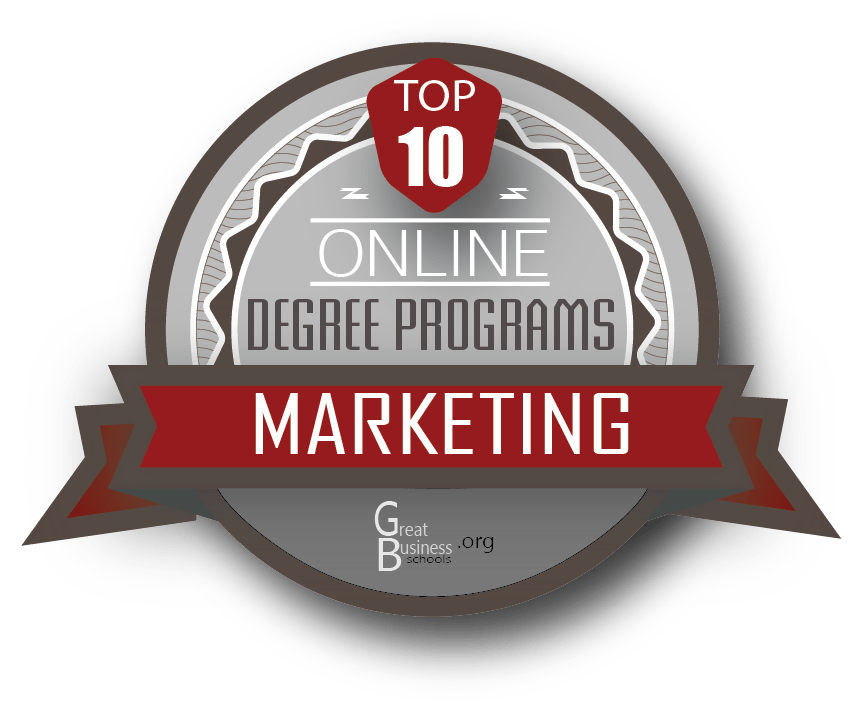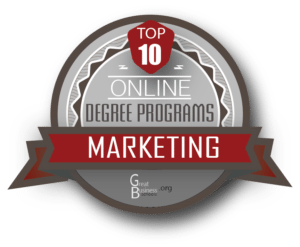
The marketing industry is one of the most exciting and challenging businesses in the world today. With a constant flood of information, attention is at a premium, and marketers have to determine the best way to target and reach customers.
Increased demand has created a significant job market. Advertising, promotions, and marketing manager roles are expected to grow 10% over the next decade, adding nearly 24,000 jobs, and the median annual wage for marketing managers is around $130k. Market research analyst jobs will grow 23%, or about three times faster than the average rate, totaling 140,000 jobs through 2026.
Whether you’re a current marketing professional
or pursuing a new career in the field, a master’s in marketing provides up-to-date skill development and can accelerate your career. For your convenience, we’ve ranked the ten best master’s degrees in marketing below, with an emphasis on flexibility, affordability, and customization. Many master’s tracks are in Integrated Marketing Communication, an increasingly popular degree in the industry, but we’ve also included specialized master’s tracks, MBA degrees, and more. Keep reading to find the best master’s for your needs!
1) Benedictine University
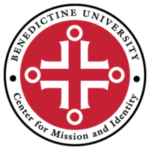
Benedictine University, founded in 1887, is a private Catholic institution with a total enrollment of about 6,000. U.S. News and Forbes have ranked Benedictine among the best colleges in the country, and The Chronicle of Higher Education highlights it as one of the fastest-growing schools in the country. With a 13:1 student-to-faculty ratio, Benedictine combines values-based education, an intimate learning environment, and individualized instruction. Over 60% of classes have less than 20 students. Additional benefits include credit for life experiences, academic and career counseling, and weekend and evening classes.
Benedictine offers an accelerated online MBA with specializations available in Internet Marketing and Marketing Management. For the former, major classes cover Search Engine Optimization, Social Media, Conversion Optimization, and Web Analytics. Marketing Management requirements include Marketing Strategies in the Digital Age, Marketing Communication, and Consumer Behavior. All courses are designed for maximum flexibility to accommodate adult learners and working professionals, and some students may be able to complete the master’s in as little as one year. In particular, graduates of the program will be prepared to align marketing strategy with organizational vision, integrate business ethics into marketing operations, and solve the most pressing challenges in 21st century business.
- Homepage
- Tuition Per Credit: $600
2) St. Bonaventure University

Founded in 1858, St. Bonaventure University is private Christian school with a total enrollment of about 2,000, the majority of whom are undergraduates. US News ranks St. Bonaventure among the top 20 in the region and 5th for overall value. In particular, the university aims to balance expert instruction with career-oriented. Nearly 100% of graduates are employed or pursuing further education within 6 months of graduation, and the university’s graduation rates are regularly 20% higher than the national average. The 11:1 student-to-faulty ratio promotes a tight-knit community, and over 60% of classes have fewer than 20 students. Academic and career counseling services are available, as well as weekend and evening classes.
St. Bonaventure’s 100% online Master’s in Integrated Marketing Communications instructs students in a wide range of theory and real-world application. Core courses include Principles and Practices, Marketing Communications Research, Digital Communications for IMC, Strategic Marketing Management for IMC, Financial Tools for IMC and the International Economy, IMC Creative Message Strategy, and Integrated Communication Practices and Procedures. Elective coursework allows students to tailor the track to areas of professional interest, and you’ll be able to show your best work to employers through an ePortfolio. Designed for maximum flexibility, St. Bonaventure offers multiple start dates throughout the year. Graduates may pursue careers ranging from Public Relations to Journalism, Communications, and Marketing Communications.
- Homepage
- Tuition Per Credit: $732
3) Marist College
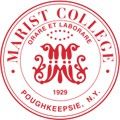
Founded in 1929, Marist College is a private Catholic liberal arts institution located in Poughkeepsie, New York, with a total enrollment of 6,600. Among the top ranked schools in the region, it’s been recognized by Forbes, Princeton Review, and Kiplinger’s, which ranked Marist on its list of best values in private colleges for eight consecutive years. US News ranks Marist 9th in the region and 2nd for value. The 19:1 student-to-faculty ratio supports an intimate and collaborative environment, and over 40% have fewer than 20 students. Additional benefits include credit for life experiences, academic and career counseling services, and evening and weekend classes.
Marist offers an online MA in Integrated Marketing Communication emphasizing digital interactive marketing and strategic communication tactics. Example courses include Principles of Integrated Marketing Communication, Public Relations Management, Analytical Tools for Decision Making, Global Consumer Insights, Brand Management, Social Media Strategies & Tactics, and Advertising Management, among others. All students also complete a capstone project to gain valuable real-world experience, and elective options are available to customize the curriculum. For maximum flexibility, Marist offers part- and full-time enrollment tracks, and the school’s extensive professional network provides students with numerous internship and practicum options as well as post-graduate employment opportunities.
- Homepage
- Tuition Per Credit: $750
4) Lasell College
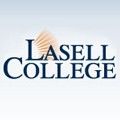
Founded in 1851, Lasell College has an enrollment of about 2,100. US News ranks Lasell among the best schools in the North, and the Chronicle of Higher Education has recognized it as one of the 10 fastest-growing colleges in the country. With an emphasis on experiential and immersive education, most students complete an internship for hands-on work, and 90% earn a service-based learning credit. (Lasell holds a Carnegie Classification for Community Engagement.) With a 13:1 student-to-faculty ratio, the college supports a tight-knit learning community, personalized instruction, collaborative learning, and small classes, including 70% with fewer than 20 students. Credit for life experience and career and academic counseling are available as well.
Lasell’s 100% online MS in Communication features a concentration in Integrated Marketing Communication. The 36-credit curriculum includes core requirements in Organizational Communication, Communication Research, Negotiations & Conflict Resolution, and Persuasion & Public Opinion, among other subjects. From there, students complete coursework in Advertising, Integrated Marketing Communications, Consumer Behavior, and either a thesis, special project, professional internship, or comprehensive exam. Designed for maximum flexibility, students can enroll in 16-week or accelerated 8-week course blocks, and Lasell’s expert faculty help students build practical knowledge as well as a professional network. Graduates will be prepared for success in roles such as Director of Paid Search, Integrated Marketing Manager, Director of Internal Communication, and Global Marketing Manager.
- Tuition Per Credit: $600
5) Indiana University

Established in 1820, Indiana has a total enrollment of about 50,000 and is ranked among the best public schools in the country by Forbes, Washington Monthly, and US News, among others. US News also cites Indiana’s veteran support and highanking undergraduate faculty, and Kiplinger’s Finance ranks IU in the top national 50 for value. The 17:1 student-to-faculty ratio is excellent for a research institution of its size, and promotes individualized instruction, collaborative learning, and small class sizes, with a third including less than 20 students. Additional services include credit for life experiences, academic and career counseling, and on-campus daycare for students’ children.
Indiana offers a 30-credit online MS in Marketing that prepares students to research and analyze consumer data and apply insights into marketing strategy. Core requirements include Quantitative Analysis, Strategic Marketing Management, Digital Marketing Theory Design and Strategy, and Managing Accounting Information for Decision-Making. From there, students have access to a wide range of electives, from Business Marketing Strategy to Performance Driven Pricing, Advertising and Promotion Management, and Marketing in the Era of Digital Technology. For those interested, Indiana also offers a dual degree program in which student can pair the MS in Marketing with an MBA. From the master’s, you’ll learn how to leverage consumer research and data, develop marketing strategies, and understand brand, advertising, and promotion management.
- Homepage
- Tuition Per Credit: $1,330
6) Texas A&M University
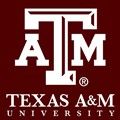
Founded in 1876, Texas A&M University a public institution with a total enrollment of nearly 70,000, including 14,000 graduate students. US News ranks A&M on at least a dozen best-of rankings, including for innovation (37th), best value (44th), and top public schools (24th). With a 20:1 student-to-faculty ratio, the university fosters a vibrant, collaborative educational setting as well as tailored instruction. Nearly a quarter of classes have fewer than 20 students. Additional services include academic and career counseling, employment and placement services, the Yellow Ribbon Program, credit for military training, and on-campus day care for students’ children.
Texas A&M’s 36-credit online MS in Marketing is one of the topanked programs in the country. Example courses include Research for Marketing Decisions, Marketing Consulting, Financial Management, Branding and Marketing Communications, Marketing Analytics and Pricing, and Marketing Leadership. Built-in elective options allow students to customize the degree to areas of professional interest, and all students are required to complete a professional internship to gain hands-on practical experience. Further, students are automatically considered for a departmental scholarship and graduate assistantship, and A&M offers accelerated 12 and 16-month programs. Recent graduates of the program have gone on to careers at PwC, Deloitte & Touche, Accenture Consulting, Ernst and Young, JP Morgan Chase, and Bain & Company, among others.
- Homepage
- Tuition Per Credit: $1,000
7) West Virginia University

Founded in 1876, West Virginia University has a total enrollment of 28,500 and is ranked among the top 100 public schools in the country. US News ranks West Virginia’s online programs on a half-dozen lists, and Washington Monthly and Forbes have also highlighted the university. The 19:1 student-to-faculty ratio supports a dynamic learning atmosphere as well as extensive research resources which have been recognized by the Carnegie Foundation. Nearly forty percent of classes have fewer than 20 students and less than 18% have 50. Credit for life experiences, academic and career counseling, and on-campus daycare for students’ children are all available,
West Virginia’s online master’s in Integrated Marketing Communications is composed of 11 courses, including core coursework in Marketing Research and Analysis, Audience Insight, Brand Equity Management, and Emerging Media and the Market. From there, students choose specialty courses in Creative Strategy and Execution, Direct Marketing, PR Concepts and Strategy. With nearly 30 elective opportunities, WVU offers one of the most customizable programs on the list, and a capstone provides valuable practical experience. Part- and full-time enrollment tracks help accommodate working professionals and adult learners. Upon graduation, you’ll be prepared to complete qualitative and quantitative research, design and organize marketing communications materials, and understand marketing communications strategies in global and multicultural settings.
- Homepage
- Tuition Per Credit: $831
8) Concordia College – New York
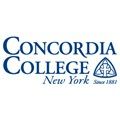
Concordia College, founded in 1881, is a private Christian institution with a total enrollment of 1,600 students. In addition to a top 25 regional ranking, US News ranks Concordia 14th in overall value. The 11:1 student-to-faculty ratio promotes a tight-knit learning community, including collaborative education and personalized instruction. Credit for life experience, academic and career counseling, and weekend and evening courses are available as well. For military veterans, Concordia offers credit for training and the Yellow Ribbon Program.
Concordia’s master’s in Business Leadership covers a wide range of valuable disciplines and skills: Leadership of Entrepreneurial/Innovative Business Organizations, Effective Decision Making and Communication, Ethics and Corporate Social Responsibility, Executive Leadership and Strategic Management, Global Cultures and Business Practices, and Risk Management Dimensions of Leadership, among others. Courses deliver in accelerated 8-week blocks, allowing students to complete the degree in as little as one year, and a focus on flexibility is ideal for working professionals, adult learners, and non-traditional students. No prerequisite courses are necessary. (Note: the Concordia master’s is a hybrid program, featuring five in-class sessions and three online sessions per course.)
- Homepage
- Tuition Per Credit: $890
9) Northwestern University School of Continuing Studies
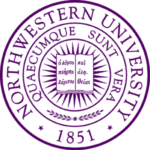
Founded in 1851, Northwestern University in Evanston, Illinois, has a total enrollment of about 21,000, evenly split between undergraduate and graduate students. Among the top schools in the country, US News, Forbes, Washington Monthly, and Times Higher Education all rank Northwestern highly. The university is also among the top twenty schools in the nation for value: 44% of students receive some form on financial aid, which is covered in full. With a 7:1 student-to-faculty ratio, the learning environment is highly collaborative and intimate, and nearly 80% of classes consist of fewer than 20 students.
Northwestern’s online MS in Integrated Marketing Communications emphasizes qualitative research methods as well as advanced analytics to build and maintain brands. Core courses cover Consumer Insight, Statistics and Marketing Research, IMC Strategic Process, Marketing Management, and Financial Accounting. Elective courses give students the opportunity to tailor the degree to areas of professional interest. With multiple start dates, coursework is designed for maximum flexibility to fit the needs of adult learners and working professionals. The program’s average age is 33. Most courses are asynchronous, and students utilize a wide range of educational tools to enhance their education, from discussion boards to live chat and video streams. Previous graduates of the degree have gone on to careers at Samsung Electronics, GE Transportation, Nuance Communications, NetJets, Cisco, and elsewhere.
- Homepage
- Tuition Per Credit: $2,462
10) Hult International

Founded in 1964, Hult International Business School is a private institution with a total enrollment just below 3,700. Hult places a special emphasis on hands-on, experiential learning, and students are encouraged to pursue interests through projects in one of five available specialization areas, including Management, Marketing, Entrepreneurship, Accounting, or Finance. All students are also required to complete a capstone project. With a 20:1 student-to-faculty ratio, Hult supports a dynamic, collaborative learning environment, and one in five courses has fewer than 20 students. Academic and career services are available as well.
Hult offers an accelerated MBA program (completed in one year) with a specialization track in Marketing. The highly immersive core coursework includes studies in Organizational Behavior, Operations Management, Leadership Skills, International Marketing, Financial Management, Global Strategy, and more. Marketing courses cover Customer Acquisition through Digital Marketing, Market Research & Analytics, Strategic Brand Management, and Solutions Marketing. All courses are designed to fit the scheduling needs of working professionals, adult learners, and non-traditional students, and a practical experience provides valuable hands-on learning. For those interested, Hult’s MBA also offers specializations in Finance, Family Business, Entrepreneurship, Project Management, and Business Analytics. Graduates currently work at such organizations as PwC, Accenture, Deloitte, Boston Consulting Group, Amazon, Morgan Stanley, and more.
- Homepage
- Total Tuition: $73,000
Carrie Morris
Author
Warren Dahl
Editor-in-Chief

